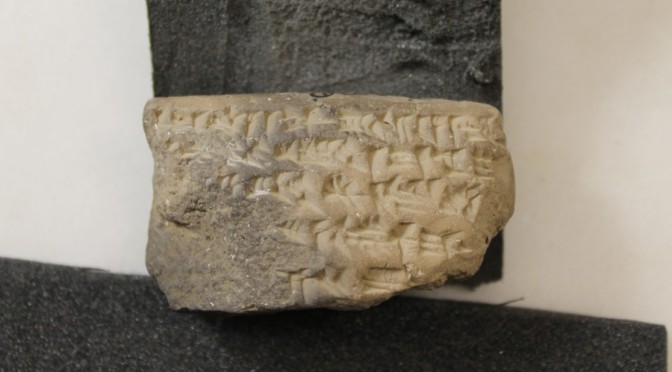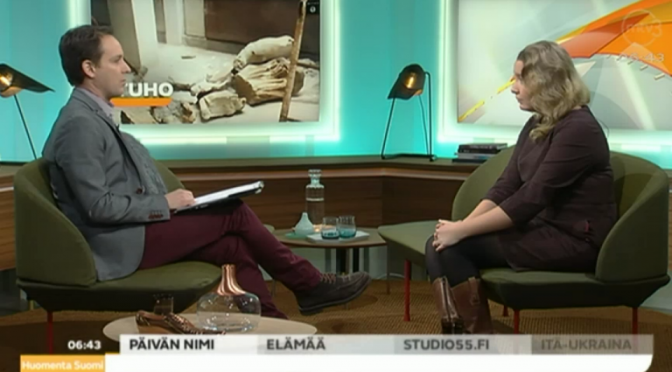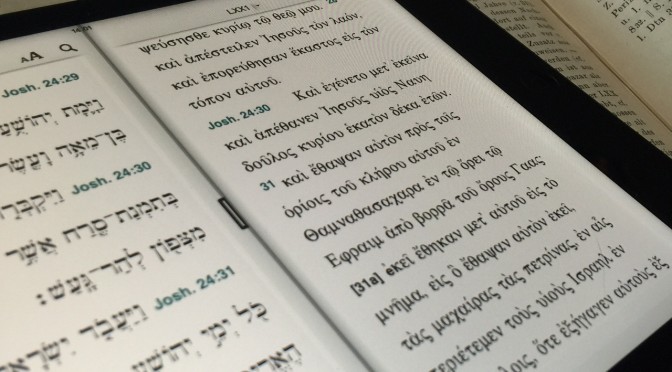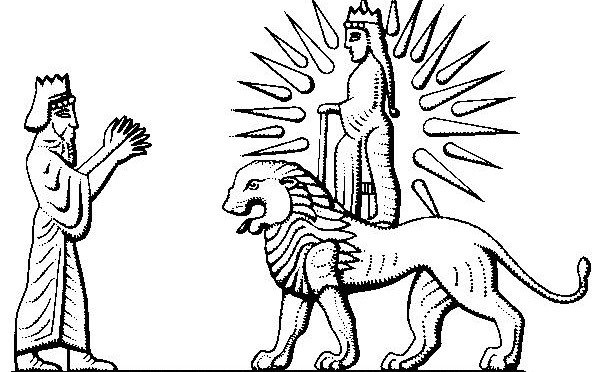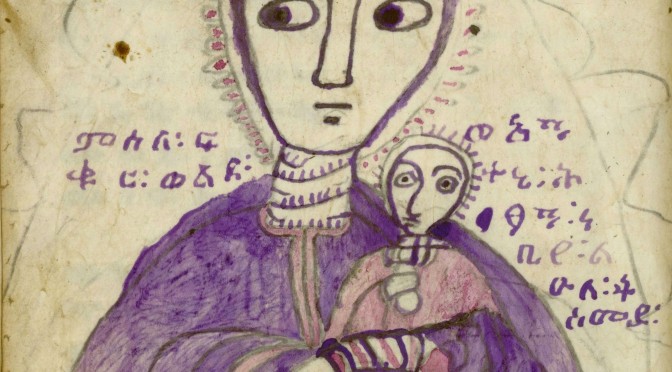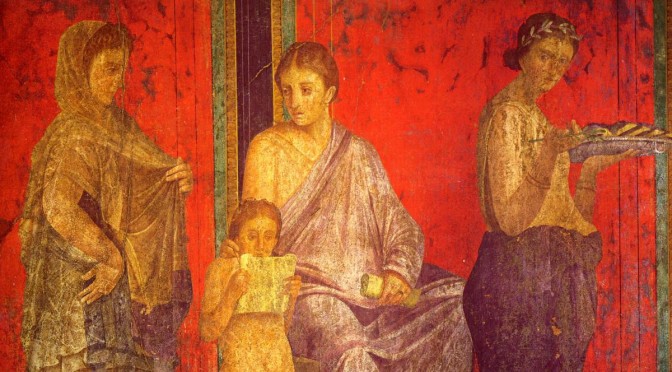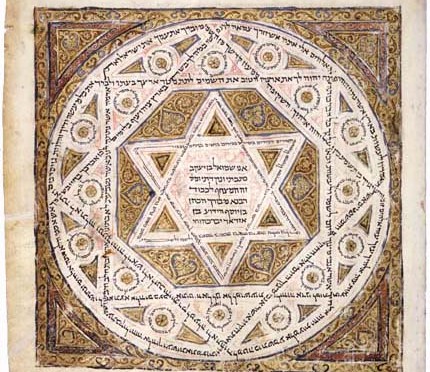Migration is an age-old phenomenon. Also the Fertile Crescent got its demography and cultures shaped by migration, whether by so-called ‘forced migration’ (deportation) or so-called ‘barbarian invasions’ (mass migration of nations) or by other migration phenomena. Such diversifications, especially when seen over several generations, lead to questions about belonging and calls for reflection on the definition of terminology, in particular ‘ethnicity’ and ‘minority’. These issues are addressed with a focus on the first millennium BCE in a conference, entitled: “What Is ‘Ethnicity’ and Who Belongs to a ‘Minority’ in the Fertile Crescent?” Continue reading Mini-conference: “What Is ‘Ethnicity’ and Who Belongs to a ‘Minority’ in the Fertile Crescent?” (Helsinki, April 21)
All posts by Rick Bonnie
ISIS tuhoaa korvaamatonta kulttuuriperintöä
Huippuyksikön jäsen, assyriologian tutkija Saana Svärd vieraili tiistaina 10. maaliskuuta MTV3:n Huomenta Suomi -ohjelmassa. Svärd kommentoi ääri-islamilaisen Isisin maaliskuun alkuviikkoina tekemiä iskuja Nimrudin alueelle ja Hatran kaupunkiin. Continue reading ISIS tuhoaa korvaamatonta kulttuuriperintöä
Why the Septuagint Can No Longer Be Ignored in Redaction Criticism
The Hebrew Bible is a collection of layered works. Its books in their various forms have been creatively edited and interwoven by ancient redactor-scribes in various historical situations using multiple sources from different time periods. In order to understand these editorial processes and use the texts in reconstructing history, scholars use the method of redaction criticism. Building on the observations of literary criticism (that is ”source criticism”), redaction criticism asks, for example: what is the ideology/theology behind the editing? What has been included or left out in the work and why? What is the community behind the editor(s)? How can the different textual layers be dated? Continue reading Why the Septuagint Can No Longer Be Ignored in Redaction Criticism
Melammu Symposium 9: “Conceptualizing Past, Present and Future”
To understand changes in sacred texts, it is necessary to understand changes in the cultures that produced them. The 9th Melammu Symposium, which will be held in Helsinki and Tartu on May 18-24, 2015, will be an exciting opportunity for all interested scholars to get a close look on the latest developments on the themes of continuity, transformation, and diffusion in the Near East and surrounding areas. Continue reading Melammu Symposium 9: “Conceptualizing Past, Present and Future”
Greek Fragments in European Libraries and Museums: A Whirlwind Tour
This winter I was able to travel extensively throughout Europe to examine in person many of the Greek Exodus fragments that I am working on for my CSTT project. I had the opportunity to visit four different libraries and museums and see fragments of six Exodus manuscripts and a large number of additional ancient and medieval manuscripts. The untapped wealth of ancient materials that are stored in European institutions never ceases to amaze me! Continue reading Greek Fragments in European Libraries and Museums: A Whirlwind Tour
Call for Papers: Ancient Jewish Cosmology-workshop (Jerusalem, June 15-16)
CSTT Workshop: Ancient Jewish Cosmology – Sacred Time and Order
École biblique et archéologique française de Jérusalem, June 15‒16, 2015
CSTT’s Team 4 “Society and Religion in Late Second Temple Judaism” is organising a workshop on Ancient Jewish Cosmology. Cosmology is here broadly understood to deal with the cosmic world order and origin, but also matters related to acknowledging, finding out, and living out this cosmic order in everyday life. The aim is to identify forms and mechanisms of change in the notions and practices relating to Jewish cosmology: the origin, nature, and fate of the universe. Also ritual practices can be related to this theme: e.g., which beliefs are transmitted through ritual practices, prayer and divination; how the understanding of the divine is reflected in the earthly sphere (architecture, collective practices, calendar, correct prayer times, etc.). Cosmology plays a role in the way in which societies structure themselves and communities select and cherish their values and moral systems. Of special interest is the influence of Hellenistic philosophy and practices on Jewish thought. Continue reading Call for Papers: Ancient Jewish Cosmology-workshop (Jerusalem, June 15-16)
Workshop on Text, Ritual and Magic (Helsinki, April 14-15)
The workshop focuses on the interface between texts and magical or ritual practices. As a starting point, we wish to question and deconstruct the dichotomy between magic and religion. We are particularly interested in texts as material artefacts and their magical and ritual uses as well as practices described in texts. The presentations cover a variety of source materials and methodological approaches as the workshop brings together scholars working in different fields. Continue reading Workshop on Text, Ritual and Magic (Helsinki, April 14-15)
Diagnostics and Textual Studies
Intuition and Its Limitations
Decision-making in textual studies is largely based on intuition. The scholar is expected to know the sources and the approach very well and it is assumed that when all the relevant information concerning a given problem is poured into the scholar’s head, eventually the right solution will come out. The truth of the solution is then tested first by the scholar’s personal conviction and subsequently by the scholarly community: the more of your colleagues you manage to convince, the better your solution. Continue reading Diagnostics and Textual Studies
Research seminar on Cognitive Science of Religion (Helsinki, March 3-4)
Trends and Challenges in the Cognitive Science of Religion
University of Helsinki, March 3-4, 2015
Venue: (note: room has changed) Faculty Room Room 531, Faculty of Theology, University of Helsinki (Vuorikatu 3, 5th floor)
Cognitive Science of Religion (CSR) emerged in the 1990s to explain regularities of religious phenomena across time and place by using the growing body of knowledge from cognitive and evolutionary sciences. Today it is a pluralistic and interdisciplinary field that focuses on the intuitive mental mechanisms underpinning religious beliefs and behaviours as well as on the interaction of the human mind, social cognition, and cultural environment. CSR applies a wide variety of different theoretical perspectives, for example, from experimental psychology, neurosciences, biology and research on emotions. Continue reading Research seminar on Cognitive Science of Religion (Helsinki, March 3-4)
One-day conference on “Power, Authority & Canon” in Edinburgh
We just received news of a highly interesting one-day conference, titled “Power, Authority & Canon“, that will be held at the University of Edinburgh on May 6, 2015. The conference is organized by Prof. Timothy Lim who recently published a book closely related to the topic of this conference (‘The Formation of the Jewish Canon‘). Continue reading One-day conference on “Power, Authority & Canon” in Edinburgh

